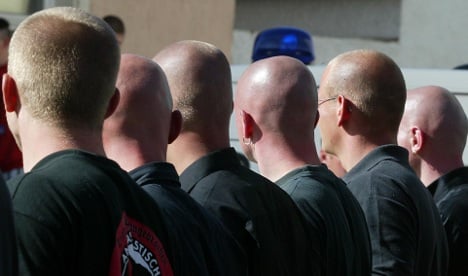According to preliminary statistics from the Federal Criminal Police Office (BKA), if December 2009 statistics follow the trend of the year’s first 11 months, then it will have been the first time in six year there was a reduction in right-wing violent crime.
Up until the end of November, 624 right-wing extremist crimes were registered in Germany. Compared to 682 during this time in 2008, this means a reduction of 8.5 percent, the paper said.
Meanwhile the number of victims injured in such crimes fell by 14 percent from 713 to 614, Bild reported.
But the number of neo-Nazi related crimes rose overall by 0.35 percent with the inclusion of crimes such as incitement of the people, Hitler greetings and swastika graffiti.
Compared to right-wing offences, leftist and anarchist crimes spiked by some 49.4 percent in the first three quarters of 2009 alone, the paper said.



 Please whitelist us to continue reading.
Please whitelist us to continue reading.